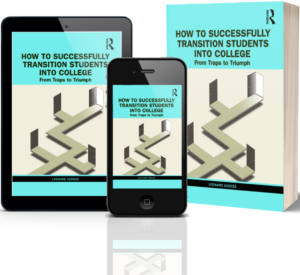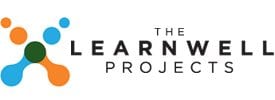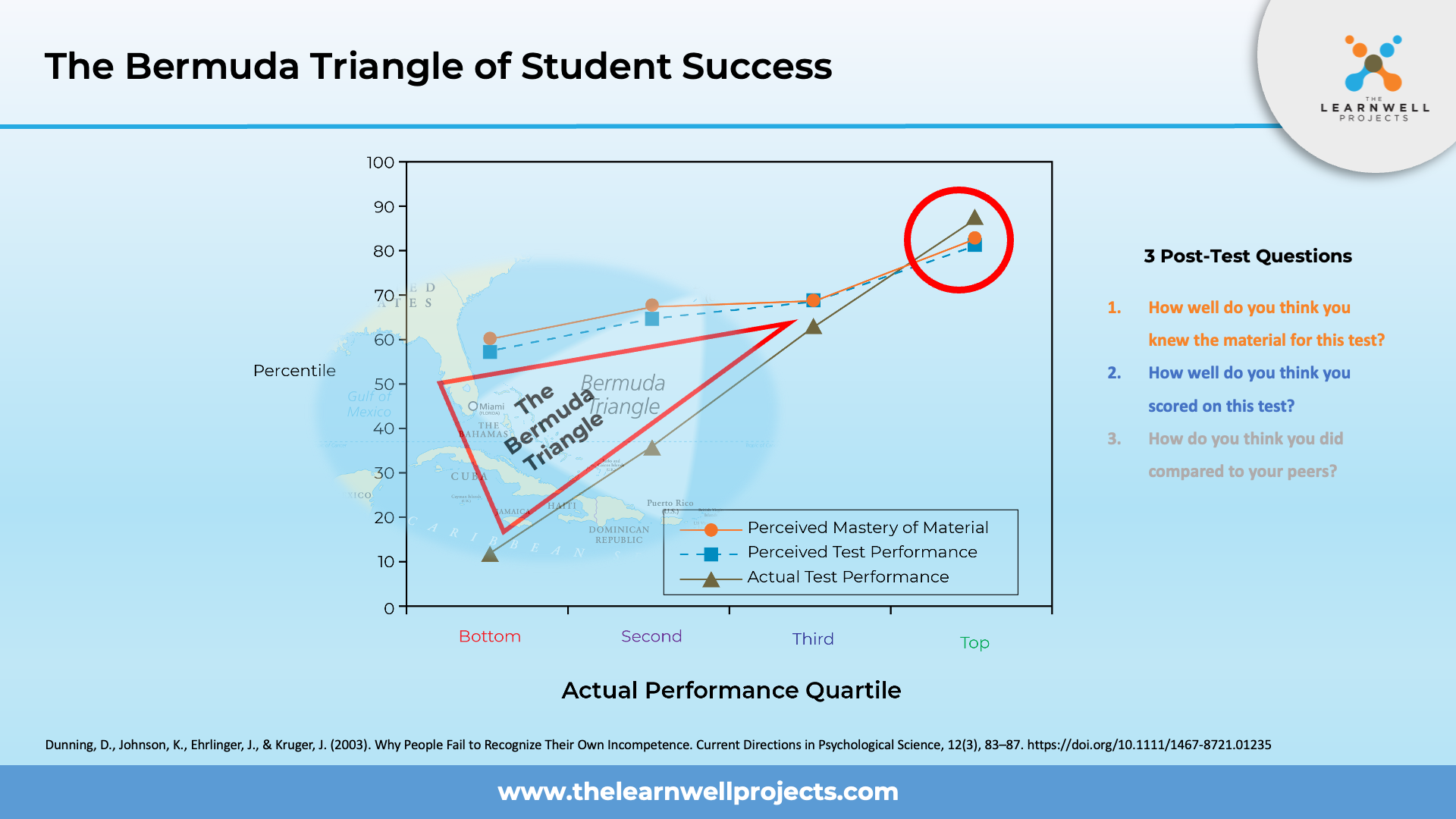You’ve likely heard of the Bermuda Triangle, that mysterious stretch of the North Atlantic where ships and planes are said to vanish without a trace 🚢✈️🌊. It’s an urban legend that captures the imagination, hinting at unexplained disappearances and baffling phenomena.
During exams, especially during the mid-term season, a similar pattern emerges in classrooms, a scenario many can relate to. Students come in, take their exams, and leave with a look of bewilderment 😕. They thought they were prepared, only to have their hopes crushed against the rocky shores of reality. This gap, the Bermuda Triangle of student success, is where students’ confidence, understanding, and performance get lost 📉.
The accompanying graph demonstrates this mysterious triangle, highlighting the gap between students’ perceived mastery of the material and their actual test performance. This disparity shows how students misjudge their understanding and readiness for exams. They either overestimate their knowledge or misunderstand what will be assessed 📚❌.
We must close this gap to improve our DFW (Drop, Fail, Withdrawal) rates, retention, persistence, and graduation rates.
Successfully Navigating Through the Triangle 🧭
To navigate this Bermuda Triangle of student success, I propose a three-pronged approach:
- Understand the mystery: We need to identify the factors and forces that make students think they are prepared when they aren’t 🕵️♂️.
- Equip and Empower Students: We must ensure that students make the proper contributions to their academic work well before the exam 📖💪.
- Install the proper Infrastructure: Educators and institutions must incorporate specific academic elements that allow students to work independently and effectively 🏫🛠️.

My new book, How to Successfully Transition Students into College, From Traps to Triumph, addresses the reasons behind students’ frequent misjudgments of their learning and preparation. It provides practical advice for educators on facilitating a smoother transition into the demanding academic workload of higher education 📘🎓.
Understanding what creates this Bermuda Triangle in education and collaborating can lead us to success. This means fewer students dropping or failing courses and more students graduating 🎉.
I invite you to share your thoughts and ideas on improving student success. Let’s discuss ways to keep students’ hopes for good grades alive and well 💬🌟. Leave a comment below.


This is such an important topic and the source of a great deal of student frustration. Many students believe they’re using effective study and review strategies (even though they’re often not) then are confused as to why they’re not getting the results they expect. What’s worse, they typically keep trying the same approach while expecting better results. If we can work with them to help them develop a more metacognitive approach, hopefully that can help to begin to break the cycle.
Thanks for your contribution to the discussion Bruce!
You have succinctly articulated The Bermuda Triangle experience. One the one hand, it’s easy to navigate students (and faculty, as they are negatively affected as well) through it. However, we must give them the appropriate navigational tools, which unfortunately we simply don’t have. We have lots of research and proposed best practices, but as you saw me demonstrate in the first session, students must be able to make the metacognitive leap from the course content to the assessed outcomes. When they do, they don’t just thrive, they experience what researchers call “the pleasures of learners.”
Most students I have met with have not looked at their learning outcomes. Using learning outcomes to guide academic work is a valuable strategy. Thank you for providing this guidance.
Hi Sandhya. Our observations align. Learning outcomes, assuming they are well constructed and used properly, are essential academic infrastructure that students need to effectively plan, monitor and evaluate their academic work. Without them, they can only guess their way forward. They should be used by teachers and students to create complementary learning environments.
I have been working hard this semester to help my students develop accurate metacognition and to help them avoid the illusion of knowing, but so many of my students still struggle. I appreciate the three pronged approach you are suggesting and plan to use those ideas. Thank you!
Hi Kim,
I like the way you use “avoid the illusion of knowing.” That is a great way of saying superficial knowledge.